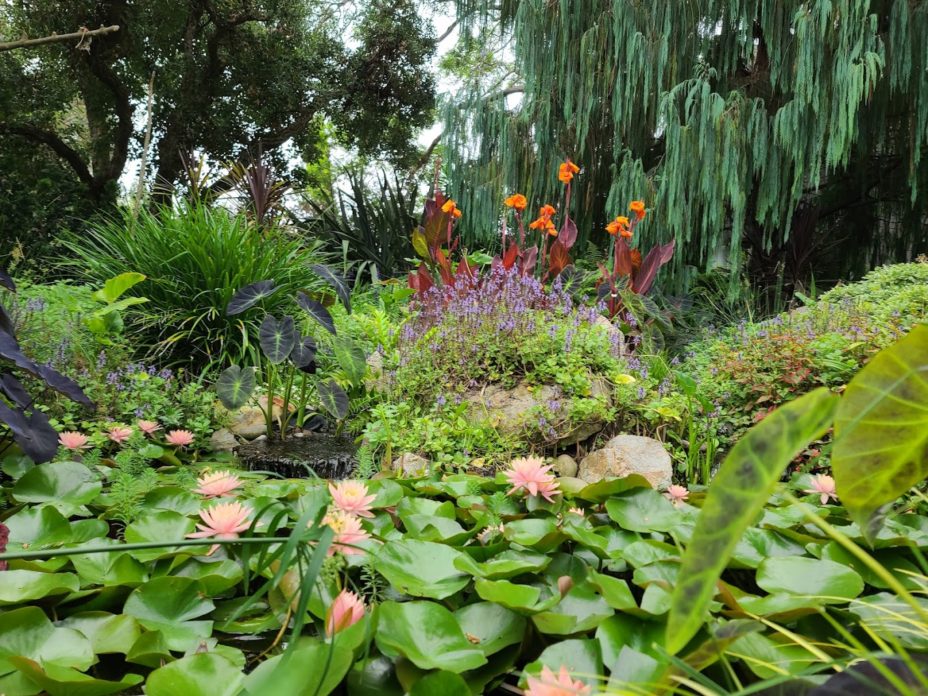Botanic Gardens Collaborate to Mentor the Next Generation of Scientists
Two California botanic gardens –San Diego Botanic Garden (SDBG) in Encinitas and California Botanic Garden (CalBG) in Claremont – will be among four public gardens nationwide involved in a new national research network created to provide training in plant science for post-graduates.
The network, known as the Rare Plant RaMP (Research & Mentoring for Postbaccalaureates in Biological Sciences) program seeks to investigate the unprecedented global decline of plant biodiversity and to broaden the experience of individuals who were not able to participate extensively in research during their undergraduate studies. The program consists of yearlong opportunities to work as part of the science team within the participating botanic gardens. It is particularly intended for individuals from demographics historically excluded from the STEM (science, technology, engineering, mathematics) workforce, first-generation scholars, and those from under-resourced institutions.
Made possible by funding from the National Science Foundation, the network is led by the Atlanta Botanical Garden and, in addition to SDBG and CalBG, also includes a partnership with The Morton Arboretum in Illinois. The network will help formalize mentoring and training programs in the workforce, rather than exclusively in collegiate settings.
SDBG in collaboration with the Salk Institute for Biological Studies, will work with mentees to engage in field botany, conservation horticulture, lab-based genetic, genomic and chemical analysis, and design of rare plant monitoring. The program at SDBG will specifically focus on the conservation of California native plants, medicinal plants, and plants useful for food and agriculture. Mentors providing hands-on training and guidance include SDBG President and CEO Dr. Ari Novy, SDBG Senior Director of Science and Conservation Dr. Colin Khoury, and SDBG Research Associate and Research Professor at Salk Institute Dr. Todd Michael.
“Working to better understand and protect biodiversity, and to empower a broader diversity of new scientists, are among our most important goals,” says Dr. Khoury, “We couldn’t be more thrilled to participate in this initiative.
“The NSF Rare Plant RaMP is an incredible opportunity to inspire a new generation of scientists about plants and how studying them is not only extremely interesting science, but also will play a role in a better future for humanity,” says Professor Michael.
California Botanic Garden will engage mentees in conservation genomics, comparative biology, common garden studies, and field botany, with an eye towards clarifying taxonomic issues to work towards more effective conservation of California rare plant populations in unique habitats like alkali wetlands. Mentees will have access to the dynamic and active research, conservation, and restoration programs at a botanic garden exclusively dedicated to the conservation, preservation, and appreciation of California Native Plants. Mentors Naomi Fraga (CalBG Director of Conservation Programs) and Carrie Kiel (CalBG Conservation Geneticist) are excited by this tremendous opportunity to build and diversify the next generation of scientists and conservationists working with rare plants.
Program eligibility applies to individuals who are first-generation college students, students from low-income households, or those from groups historically excluded from STEM. Participants must have a baccalaureate college degree before participating in the program (applicants must apply to the program before or within four years of graduation, with extensions allowed for family, medical leave, or military service). Individuals cannot be currently enrolled or accepted into a graduate program and must be U.S. citizens, U.S. nationals, or permanent residents of the United States.
For more information about the program and applications, visit sdbg.org. |

Category: Business, Donations, Education, Events, Gardening, Health & Fitness, Local News, Nonprofit, Plants, Sustainability







